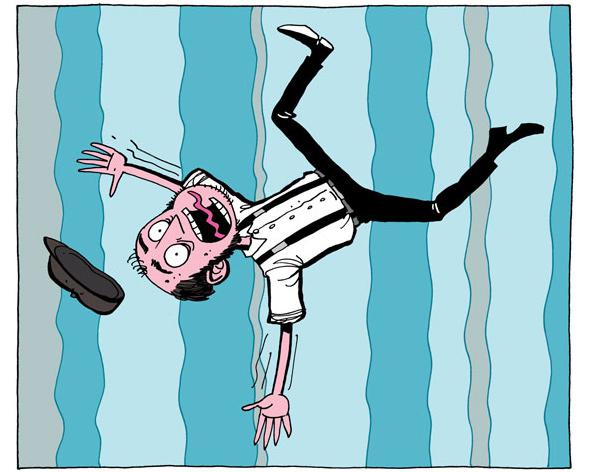Regular readers may be familiar with Gavin Aung Than’s wonderful web comic Zen Pencils: He takes famous quotations (or quotations from famous people, or just really, really good quotations) and draws a comic around them, illustrating them in ways that augment and expand their meaning*.
In a recent comic, he illustrated the wonderful words of Albert Einstein, who was describing how a sense of mystery is the foundation of both religion and science. Than uses a perhaps anecdotal scene where Einstein saw a man fall from a tree, which gave him the idea of the Equivalence Principle— that accelerating due to gravity and simply undergoing a force are the same thing.
I suggest you read the whole thing, as it’s lovely. Einstein commonly waxed poetic at the profound nature of science, and its fundamental ability to help us understand the Universe, and when he did he was quite moving.
And yet, I have to quibble with the Good Doctor. It’s a good quotation, but I don’t think mystery is the foundation of religion. I am not an historian, but from my own readings it seems to me that mystery was the jumping off point of most religions; the desire to explain the things we see around us and to answer the big questions.
But for most religions today, they claim to have the answers, and that removes the mystery. Oh, sure, there are bits about “God moving in mysterious ways” and other passages in religious texts, but these have always struck me as telling their adherents not to question, not to wonder why. Just accept.
Not all religions are like that, of course, and many religions have sects and subsects with different interpretations of their holy books and how to implement their words.
But what I like about science is that it doesn’t claim to have answers. It has methods. Yes, we do get answers, and many times they’re pretty solid. But science is all about leaving a little bit of room for further data, for an observation that doesn’t fit, for some new discovery to append or upend what we already know. Newton overturned Aristotle, and Einstein himself put Newton’s work into a larger framework; he didn’t negate it, but put it in context and showed where it could be more accurate.
I also quibble with Einstein’s phrasing, “This is religiousness.” In my opinion a better word for that would be numinous, which is arousing spiritual emotion. That’s different than actual religiousness in my book.
But like I said, these are quibbles. His point is solid, and I agree with it: There is a depth and profundity to science for those who pursue it honestly and with an open mind. The language of the Universe is written in the behavior of the Universe; science and math are how we read it.
* Full disclosure: He also made a comic out of one of my own blog posts, making it approximately a bazillion times better.
